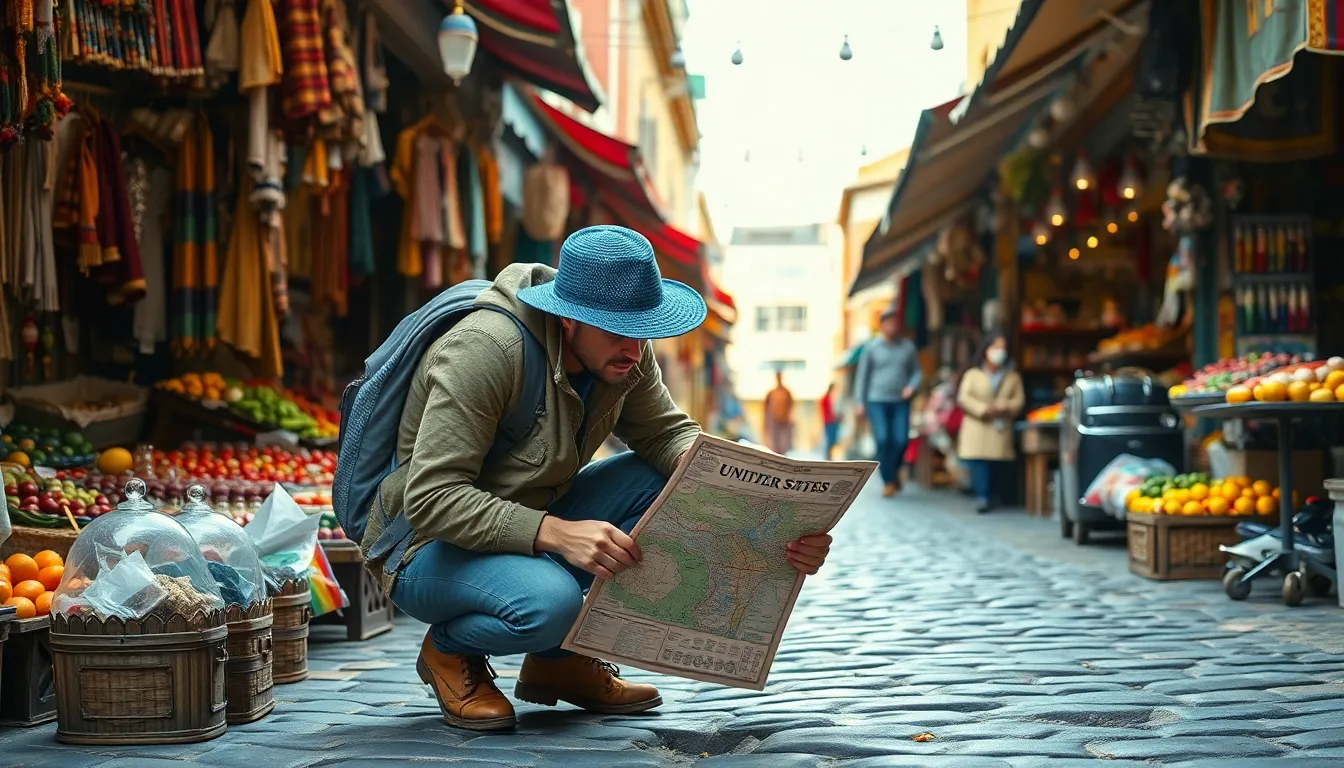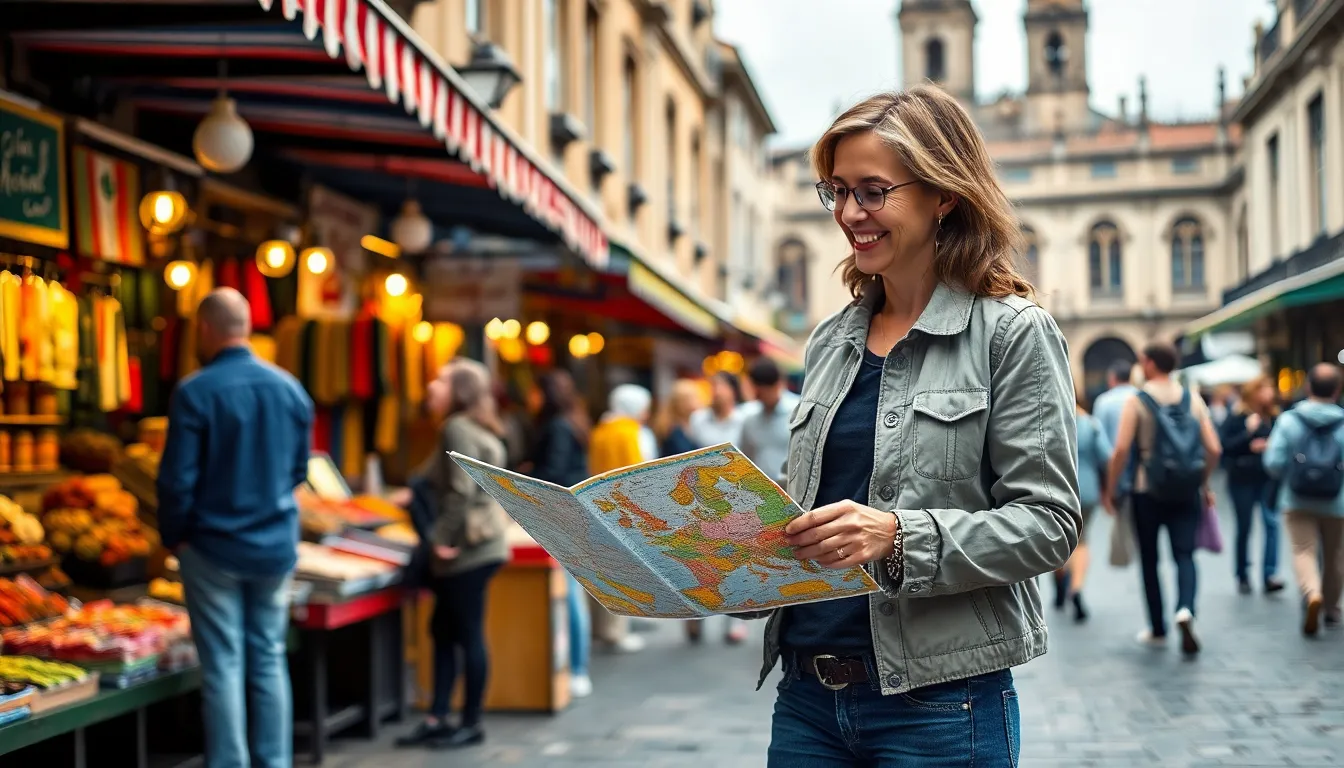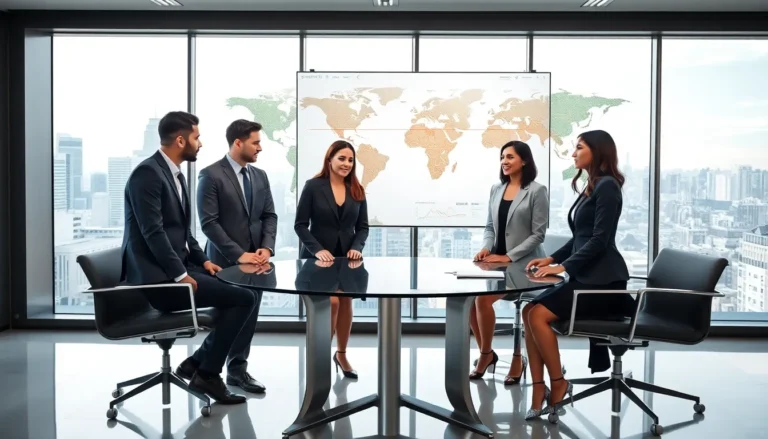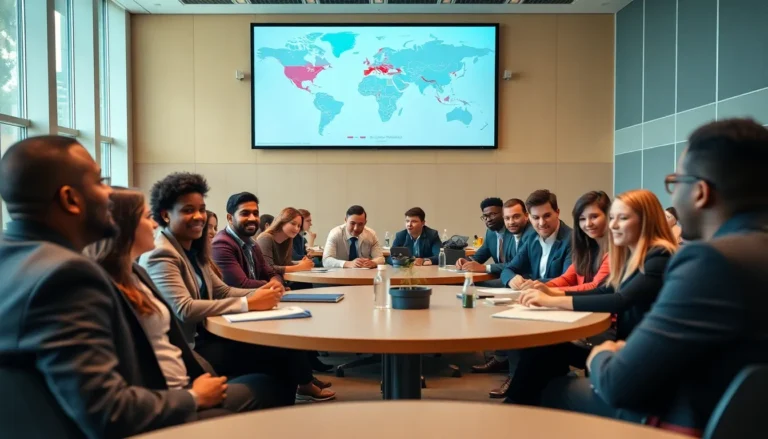Table of Contents
ToggleTraveling opens up a world of adventure, but it also comes with its own set of risks. Whether exploring a bustling city or hiking through remote landscapes, staying safe is crucial for a memorable experience. Understanding potential dangers and knowing how to navigate them can make all the difference.
From securing belongings to staying aware of surroundings, practical travel safety advice helps travelers avoid common pitfalls. With a few simple tips and strategies, anyone can enhance their safety while enjoying new destinations. This guide aims to equip travelers with essential knowledge to ensure their journeys are not only exciting but also secure.
Understanding Travel Safety
Travel safety encompasses awareness and preparedness to mitigate risks while exploring new destinations. Recognizing potential dangers enables travelers to enjoy their adventures securely.
Importance of Travel Safety
Travel safety remains crucial for preventing dangers that can undermine experiences. Implementing safety measures protects personal belongings, ensures health, and enhances overall enjoyment. Awareness of surroundings and adherence to safety practices contribute to a more secure travel experience.
Common Travel Risks
Travelers face various risks, including:
- Theft: Pickpockets and scams are prevalent in crowded areas.
- Health issues: Foodborne illnesses and lack of access to medical care can occur.
- Transportation accidents: Local transport may lack safety regulations, increasing accident risks.
- Natural disasters: Some regions face earthquakes, hurricanes, or floods.
- Cultural misunderstandings: Ignoring local customs can lead to conflict or dangerous situations.
Understanding these risks enables travelers to take precautions and stay safe during their journeys.
Pre-Trip Preparations

Pre-trip preparations play a crucial role in ensuring a safe travel experience. Thorough planning can significantly reduce potential risks and enhance overall enjoyment.
Research Your Destination
Researching your destination provides valuable insights into safety conditions and cultural norms. Travelers should check government travel advisories and local news outlets for updates on safety issues. Familiarizing oneself with emergency contact numbers, such as local police and hospitals, proves essential. Understanding cultural customs helps avoid misunderstandings and enhances the travel experience. Identifying reputable accommodations and transportation options also contributes to a safer journey.
Health Precautions
Health precautions help travelers maintain well-being during their trips. Vaccinations may be necessary depending on the destination; consulting a healthcare provider ensures travelers are up-to-date on required immunizations. Carrying a travel health kit supplies essential items like medications, first aid materials, and insect repellent. Travelers must also research local health facilities and know how to access care if needed. Staying hydrated and following food safety guidelines minimizes health risks while traveling.
Transportation Safety
Transportation safety is crucial for any travel plan. Awareness of safe options and understanding public transport systems can significantly reduce risks.
Choosing Safe Options
Choosing safe transportation options is essential for a secure travel experience. Travelers should consider the following:
- Reputable Services: Use licensed taxis or rideshare services, and verify the driver’s identity before getting in.
- Public Transport: Opt for well-reviewed public transport systems, as they often have established safety standards.
- Rental Vehicles: Select recognized car rental companies, ensuring vehicles undergo regular safety checks.
- Travel Insurance: Purchase coverage that includes transportation-related incidents, providing additional peace of mind.
- Local Recommendations: Seek advice from locals or trusted sources about the safest transportation methods available.
Navigating Public Transport
Navigating public transport requires awareness and preparation. Travelers can enhance their safety by following these guidelines:
- Research Routes: Familiarize yourself with routes, schedules, and stops before using public transport to avoid confusion.
- Stay Alert: Maintain situational awareness while in crowded areas and on transit to deter theft or distractions.
- Secure Belongings: Keep bags zipped and important items close to the body, especially in busy settings.
- Travel in Groups: Use public transport with companions whenever possible, as group travel provides an extra layer of security.
- Emergency Contacts: Note down essential emergency numbers relevant to the transport system in the area for quick access.
By prioritizing safe transportation methods and being mindful of public transport safety measures, travelers can further protect themselves during their journeys.
Staying Safe While Exploring
Travelers can enhance their safety by remaining vigilant and adopting practical strategies. This section provides essential tips for personal safety and managing valuables while exploring new destinations.
Personal Safety Tips
- Stay Aware: Heed surroundings and maintain awareness of any potential threats. Frequent scanning of the environment helps identify suspicious behavior.
- Trust Instincts: Rely on intuition regarding personal safety. If a situation feels uncomfortable, leaving the area becomes imperative.
- Blend In: Dress like locals to avoid drawing attention. Dressing appropriately based on cultural norms reduces the risk of targeting.
- Use Technology Wisely: Install safety apps that provide location sharing or emergency contacts. Smartphone features, like location tracking, enhance safety for solo travelers.
- Limit Alcohol Intake: Excessive drinking can impair judgment. Moderation ensures better decision-making and awareness of surroundings.
- Keep Emergency Contacts Ready: Save local emergency numbers and contacts for the nearest embassy. Quick access to vital information improves response time during crises.
Managing Valuables
- Use Anti-Theft Bags: Invest in bags with anti-theft features, such as lockable zippers and cut-resistant straps. These bags deter pickpockets and secure belongings.
- Avoid Displays of Wealth: Conceal expensive items, like jewelry and electronics, when not in use. Keeping valuables hidden minimizes the chance of theft.
- Divide Valuables: Split cash and cards among different pockets or bags. This approach reduces the loss in case of theft or misplacement.
- Utilize Hotel Safes: Store important documents and valuable items in hotel safes when not needed. Secure storage provides peace of mind while exploring.
- Stay Alert in Crowded Places: In busy areas, like markets and public transport, maintain a firm grip on bags. Awareness in crowds protects against opportunistic theft.
- Consider Travel Insurance: Obtain coverage that includes stolen or lost valuables. Insurance alleviates financial burdens resulting from theft or loss.
By incorporating these strategies, travelers can navigate their adventures with heightened assurance and security.
Emergency Preparedness
Emergency preparedness plays a crucial role in ensuring travel safety. Travelers must be ready for unexpected situations and equipped with effective plans to handle emergencies.
Creating an Emergency Plan
Creating an emergency plan involves outlining specific steps for various scenarios. Travelers should identify emergency exits in accommodations, locate nearby medical facilities, and establish a communication strategy with family or friends. Designating a meeting point in case of separation also enhances readiness. Preparing for natural disasters requires awareness of local risks, such as hurricanes, earthquakes, or floods, and understanding safety protocols associated with these events.
Knowing Local Emergency Contacts
Knowing local emergency contacts significantly enhances travel security. Travelers must research and document essential numbers before their journey, including local police, ambulance services, and fire departments. It’s also beneficial to note the contact information for the nearest embassy or consulate. Keeping this information easily accessible ensures quick action when emergencies arise. Additionally, utilizing app-based services that store emergency contacts can provide immediate access while on the go.
Travel safety is a vital aspect of any journey. By staying informed and prepared, travelers can significantly reduce risks and enhance their overall experience. Implementing practical safety measures allows for peace of mind while exploring new destinations.
Awareness of surroundings and understanding local customs can make a world of difference. With the right precautions in place, travelers can focus on creating unforgettable memories.
Embracing a proactive approach to safety ensures that adventures are not only enjoyable but also secure. By prioritizing safety, travelers can embark on their journeys with confidence and excitement.





